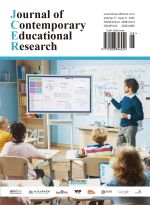Abstract
The advancement of medical science has elevated medical English to a critical role in facilitating international medical exchange and scientific collaboration. However, traditional medical English pedagogy often suffers from an overemphasis on linguistic knowledge at the expense of practical application and a teacher-centered approach that neglects knowledge construction. These limitations hinder the cultivation of interdisciplinary talents required for clinical practice and scientific research. Guided by constructivist learning theory and utilizing the teaching case of the course “Emerging Pathogenic Fungal Infections,” this study explores reform pathways through reconstructing teaching objectives, redesigning instructional processes, and optimizing assessment systems. Specifically, targeted curriculum enhancements were implemented to strengthen students’ international literature reading proficiency. The reform aims to holistically improve students’ ability to utilize medical English for solving practical problems, offering valuable insights for medical English education.
References
Milosavljević N, Vuletić A, Jovković L, 2015, Learning Medical English: A Prerequisite for Successful Academic and Professional Education. Srp Arh Celok Lek, 143(3–4): 237–240.
Du H, Bing J, Hu T, et al., 2020, Candida Auris: Epidemiology, Biology, Antifungal Resistance, and Virulence. PLoS Pathog, 16(10): e1008921.
Lockhart S, Etienne K, Vallabhaneni S, et al., 2017, Simultaneous Emergence of Multidrug-Resistant Candida Auris on 3 Continents Confirmed by Whole-Genome Sequencing and Epidemiological Analyses. Clin Infect Dis, 64(2): 134–140.
Gao J, Chao E, Wang H, et al., 2021, LncRNA DINOR Is a Virulence Factor and Global Regulator of Stress Responses in Candida Auris. Nat Microbiol, 6(7): 842–851.
Rhodes J, Abdolrasouli A, Dunne K, et al., 2022, Population Genomics Confirms Acquisition of Drug-Resistant Aspergillus Fumigatus Infection by Humans from the Environment. Nat Microbiol, 7(5): 663–674.
Hong S, Lee J, 2022, Evaluation of Therapeutic Communication Education for Nursing Students Based on Constructivist Learning Environments: A Systematic Review. Nurse Educ Today, 119: 105607.
Mahjoub M, et al., 2019, Learning of Medical English and Academic Curricular Reform in Medicine. Tunis Med, 97(7): 853–858.
Lionakis M, Chowdhary A, 2024, Candida Auris Infections. N Engl J Med, 391(20): 1924–1935.
Antić Z, 2015, Benefits of Student-Centered Tandem Teaching in Medical English. Srp Arh Celok Lek, 143(7–8): 500–504.
